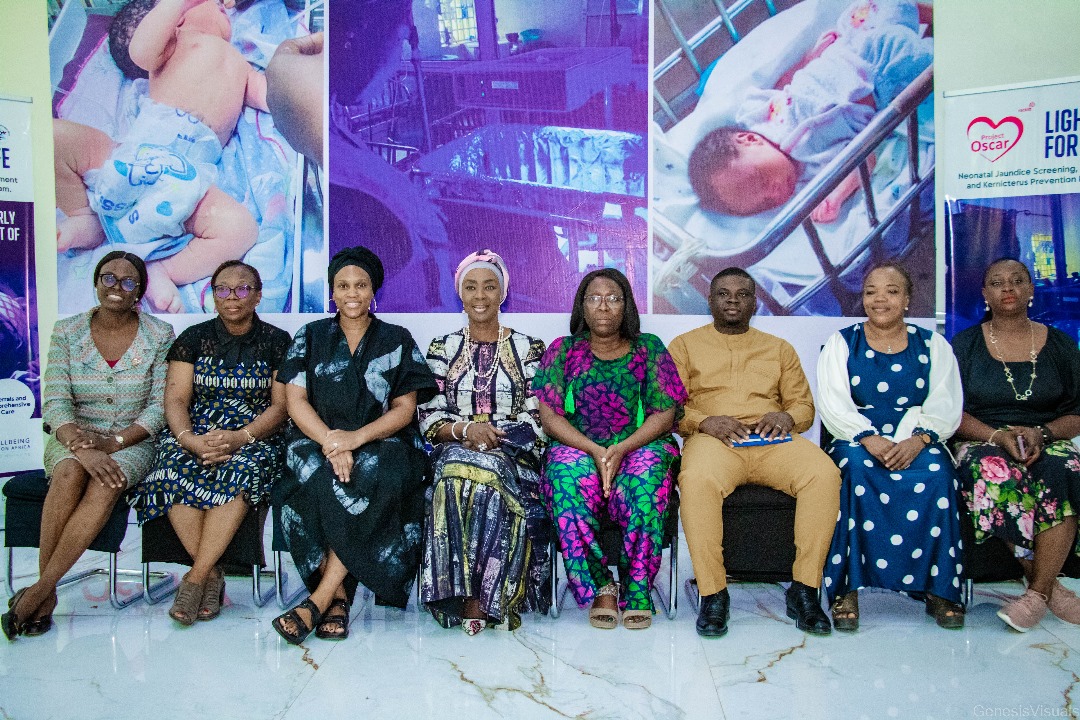Reckitt Nigeria and The Wellbeing Foundation Africa (WBFA), in a collaborative initiative, will screen over 9,000 infants for Neonatal Jaundice (NNJ) over the next 18 months.
The initiative aims to ensure timely detection and intervention by preventing disabilities and saving lives of infants from jaundice.
Neonatal jaundice, characterised by yellowing of the skin and eyes in newborns, can lead to severe complications, including brain damage, if not treated promptly. Launched on 3rd December 2024, Project Oscar will strengthen early identification, timely referral, and effective management of NNJ across healthcare facilities in Lagos State.
Supporting this initiative are the Lagos State Ministry of Health, NEST360, SCIDaR, and the London School of Hygiene and Tropical Medicine.
The 18-month project will educate over 10,000 mothers on the early signs and treatment of NNJ, empowering communities with essential knowledge. Additionally, 300 healthcare workers will receive specialised training in NNJ management. One tertiary and 5 secondary healthcare facilities will be equipped with 6 phototherapy units and 6 BiliDx bilirubinometers. For post-discharge care, mothers will receive Bilistrips for continued monitoring.
At the primary healthcare level, 12 facilities will be equipped with 12 transcutaneous bilirubinometers, 12 BiliDx bilirubinometers, and Bilistrips for home use.
In her opening remarks at the stakeholder meeting titled “Strengthening Neonatal Jaundice Management: Multi-stakeholder Engagement for Effective Referral and Care Coordination,” Founder and President of WBFA, Toyin Saraki, highlighted the pressing issue of neonatal jaundice in Nigeria. “Neonatal jaundice remains a major but preventable contributor to neonatal mortality and lifelong disabilities in Nigeria, affecting 60 per cent of term newborns and nearly 100 per cent of preterm infants.”
Saraki’s remarks, delivered by the Director of Programmes at WBFA, Williams Awotunde, emphasised the gaps in early detection, limited access to effective phototherapy treatment, and delayed referrals, which continue to put thousands of newborns at risk of severe complications such as kernicterus, cerebral palsy, and hearing loss.
“Addressing this challenge requires a coordinated, evidence-based, and systemic response, which is why this gathering is critical to discussing improvements to the referral system to ensure no newborn is left behind due to delays or systemic inefficiencies.
Saraki, however, pointed out that technology and training alone will not suffice. “Community engagement remains a pillar of success, as cultural beliefs and misconceptions often delay treatment-seeking behaviour,” she explained.
Project Oscar leverages existing cultural touchpoints, such as traditional eighth-day naming ceremonies, to promote a crucial seventh-day neonatal health check, ensuring timely detection of jaundice symptoms before they become life-threatening.
Saraki called on all stakeholders, health policymakers, frontline healthcare providers, development partners, and community leaders to commit to integrating neonatal jaundice screening and treatment into routine neonatal care protocols. “Sustainable progress requires not only investment in infrastructure and training but also policy integration and advocacy to ensure that every newborn, regardless of location, has access to timely and effective care,” she concluded.
On her part, the Medical Director and CEO of Massey Street Children’s Hospital, Dr. Olutekunbi Olanike, expressed her delight at the introduction of Project Oscar, “Light for Life,” in Lagos State.
She highlighted the significant impact this initiative will have, particularly in managing neonatal jaundice in babies. “Identifying babies with neonatal jaundice early and promptly intervening is crucial. Statistics show that about 60 per cent of term newborns and nearly 100 per cent of preterm babies will develop jaundice. This underscores the heavy burden in terms of numbers,” Dr. Olanike stated.
Emphasising the importance of collective effort, she remarked, “We keep saying the government cannot do it alone. This project will augment what the government is already doing, and more babies will benefit from it. Project Oscar is not just about secondary and tertiary care. I am excited that they have incorporated primary healthcare centres right in the communities so that these babies can be identified early. It’s a laudable project, and I’m excited that it has come to Lagos State.”
